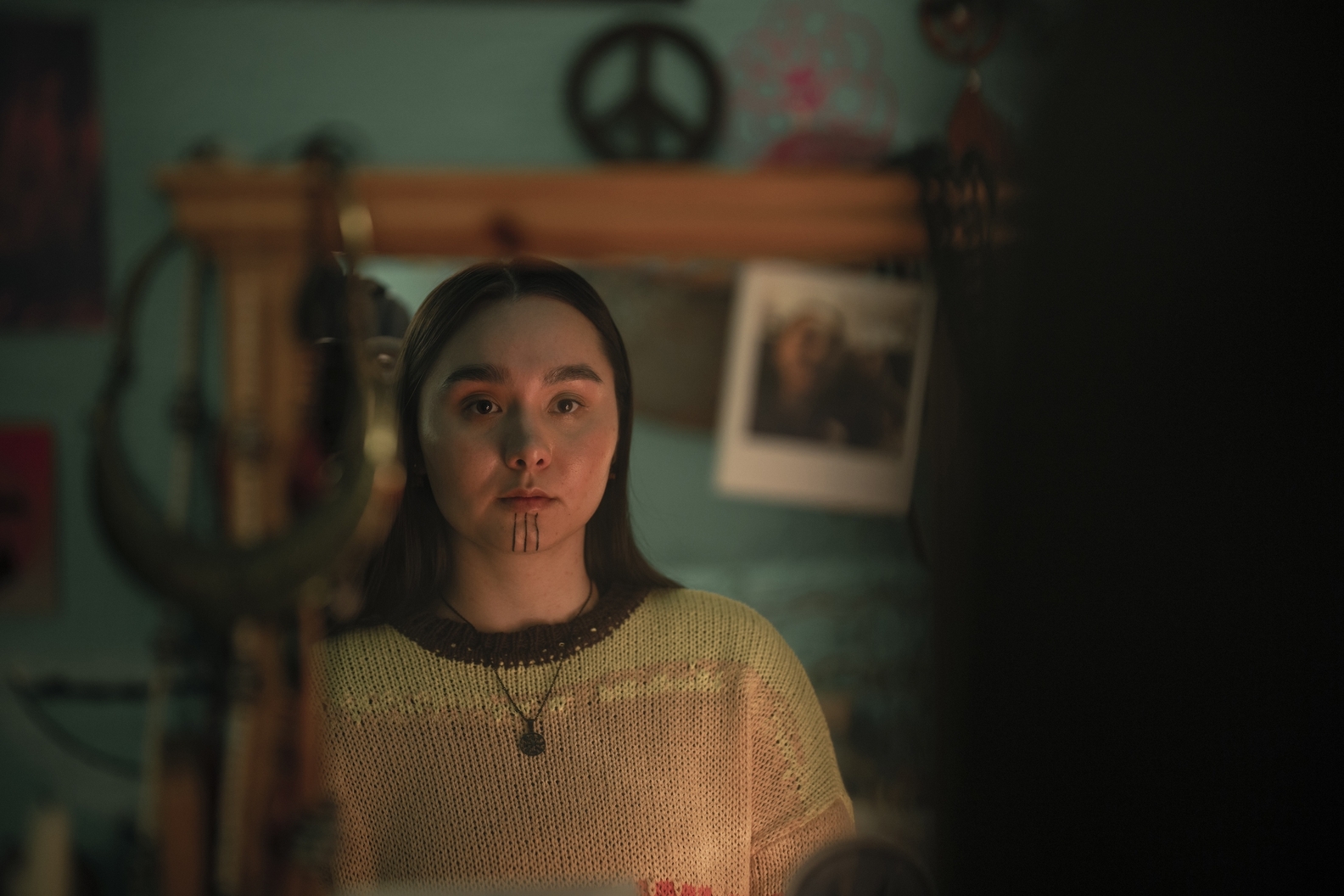HBO’s ‘True Detective: Night Country’ follows the investigation into two cases separated by six years but linked by several threads that threaten to unravel the fragile balance in the town of Ennis. Covered in the darkness of a polar night, the town experiences some very disturbing things, but amidst that, the townspeople also fight for their land and their heritage. One of the characters in the show who is on the journey to understand who she is is Liz Danvers’ stepdaughter, Leah. They butt heads when Leah gets a temporary tattoo on her face, which Liz strongly disapproves of. What does that tattoo mean?
Leah’s Chin Tattoo is a Mark of Her Native Heritage

When Liz finds Leah at Prior’s house with his wife’s grandmother, the old woman tells her that Leah wanted “to see what kakiniit’d look like on her beautiful face.” Kakiniit is the term for the traditional tattoos of the indigenous people of the North American Arctic. The tattoos are not just limited to the face. Indigenous woman have had tattoos on different body parts, signifying various purposes, from a rite of passage to marking a significant event in their lives.
The practice of tattoos dates back thousands of years in indigenous cultures. The stripes on the chin, like the ones Leah gets and also seen on the faces of several other characters in the show, represent different things for different people. Traditionally, the first stripe represented a woman coming of age, with each new stripe representing an important moment, an accomplishment that they wanted to celebrate and remember.
The strips on the chin were also the markers of pain tolerance, with wider bands denoting the woman’s strength. The type and design of the tattoo would also depend on the tribe they belonged to, relating the tattoo to a person’s cultural identity. But this practice was on the brink of being lost due to years and years of colonial oppression. When the missionaries arrived, they attacked the Native culture, forcing people to let go of their cultural practices in an effort to erase their cultural identities.
Despite the damage inflicted by their actions, the practice has not only survived but is also being revitalized by Native women who are exploring their indigenous roots and reconnecting with their traditions. The tattoos have taken over a new meaning for them, celebrating their accomplishments, personal or professional, while also connecting with their roots and keeping thousands of years of traditions of their ancestors alive.

For Leah in ‘True Detective: Night Country,’ the tattoos are a way to return to her roots and people. While she has grown up in Ennis, she feels out of touch with her people. With her father’s death, she is left with her stepmother, who is not Native and, hence, doesn’t understand what Leah is going through. The disconnect that she feels from her own culture aggravates the issues she is already dealing with as a teenager. But for her stepmother, the tattoo means trouble.
Liz knows that the indigenous community is protesting against the mines, and every time she sees the chin tattoo, she is reminded of Annie Kowtow and her brutal death. She fears that Leah might go down the same road and end up getting hurt. She doesn’t think about the disconnect Leah feels and how it alienates her even more. Liz’s ignorance and sheer lack of acceptance of indigenous customs, be it their tattoos or their names, marks her as a perpetual outsider and also why she is so universally disliked. Slowly, however, as Leah starts to delve deeper into her cultural identity and connects with her community, Liz, too, has to confront her own shortcomings.
Read More: Is The Spiral Symbol in True Detective Season 4 Connected to Season 1?


You must be logged in to post a comment.